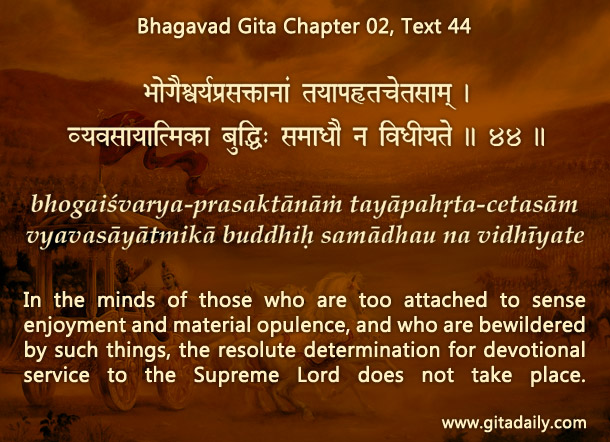When a plane is flying on course in the sky, it can be set on auto-pilot and it will cruise towards its destination – provided there are no turbulences. Amidst such disturbances, the pilot needs to take control and get the plane back on course.
During our life’s routine course, our mind may go on auto-pilot, wherein we start doing things by habit, without conscious thought. Such functioning can work for things that don’t require much intelligent attention such as doing the laundry or plates.
But the mind on auto-pilot malfunctions when we face habitual temptations that we are trying to resist. Entering such temptation zone is like hitting turbulence. Just as a plane hitting turbulence veers off-course, so too does a mind meeting temptation. The mind on auto-pilot defaults to the course of least resistance which ends in immediate indulgence. And we end up relapsing.
The Bhagavad-gita (02.44) cautions that worldly attachments present in our mind misdirect us away from self-actualization. Being thus misdirected, we go towards destruction of our higher resolutions and aggravation of our addiction.
By remembering such scriptural warnings, we learn to tread through temptation zone cautiously, not impulsively. As we become more conscious and conscientious of what we are doing and why, we can recognize and correct course deviations faster.
Isn’t cultivating such conscientiousness exhausting? Not if we channel it positively to focus on the all-attractive supreme, Krishna, by practicing bhakti-yoga. By such practice, we access the higher wisdom and taste coming from absorption in him. Over time, our mind changes its default conception of what the best source of pleasure is – not our habitual mundane indulgence, but our Lord.
When the mind becomes more attached to Krishna than to the world, it becomes our friend, and its auto-pilot mode veers us towards our best interests.
To know more about this verse, please click on the image
Explanation of article:
Podcast:


to keep the mind unabated is very dsngerous